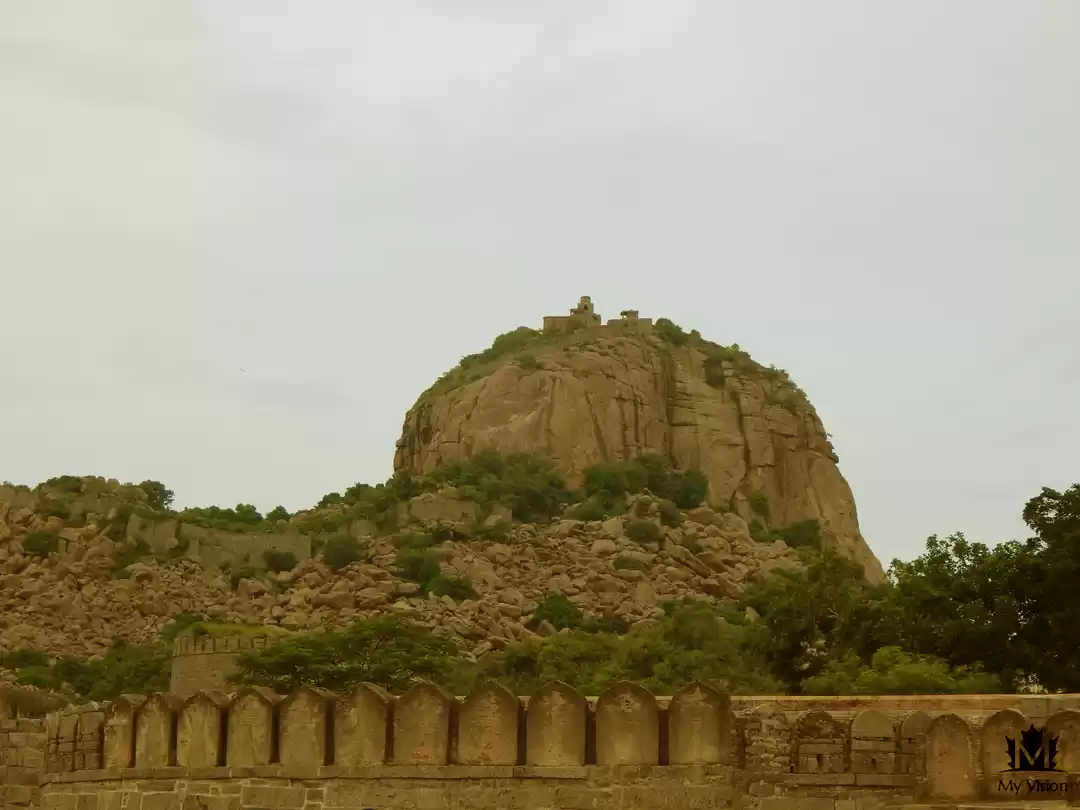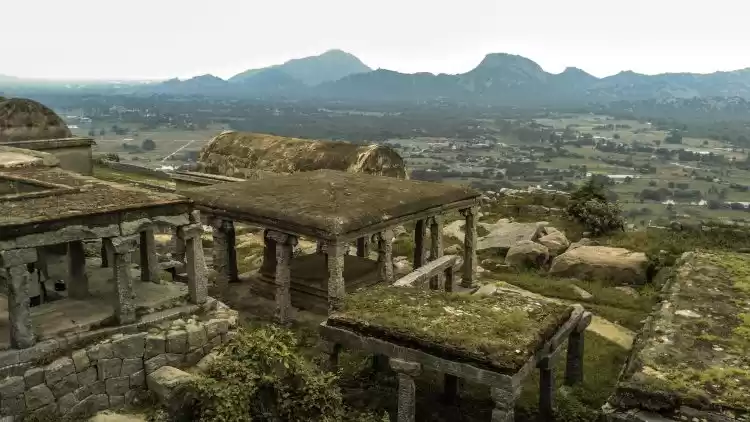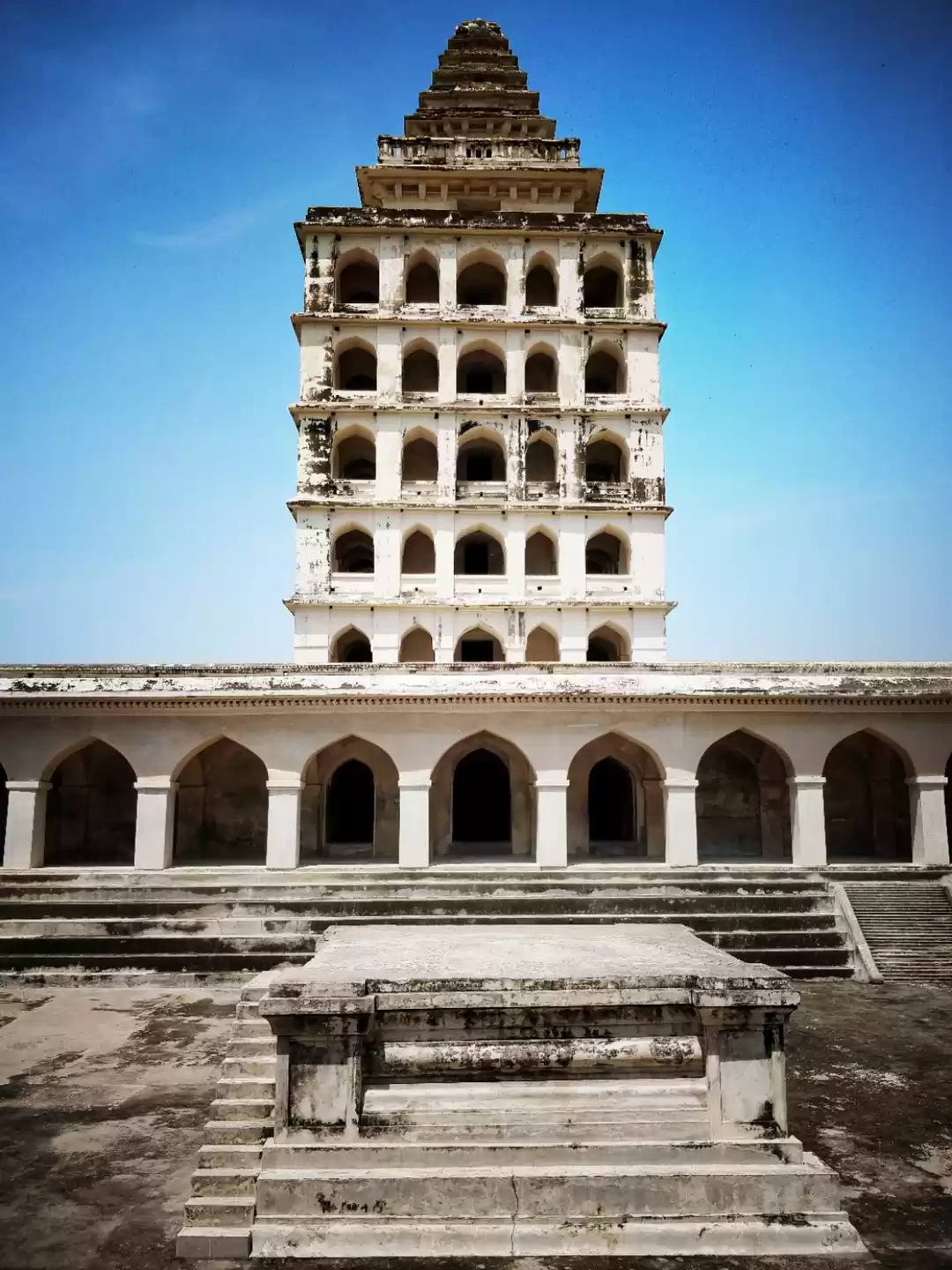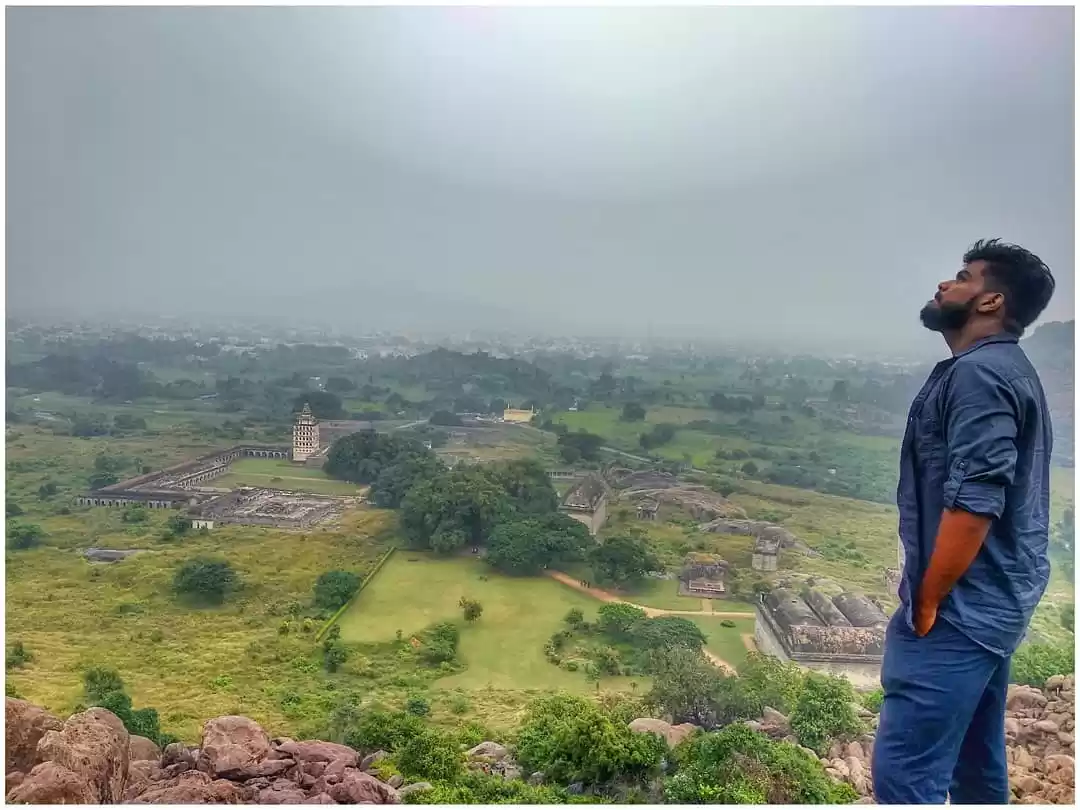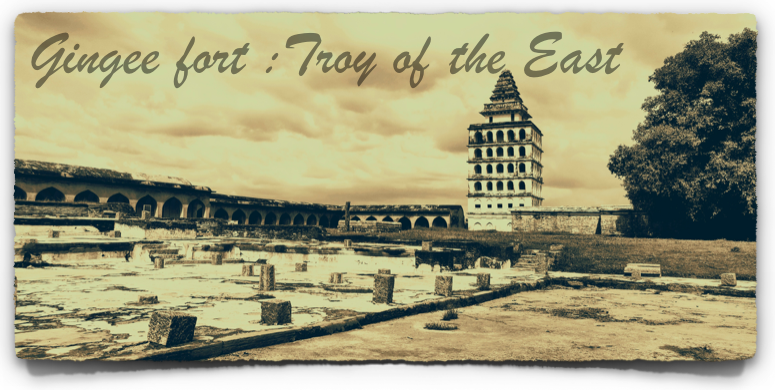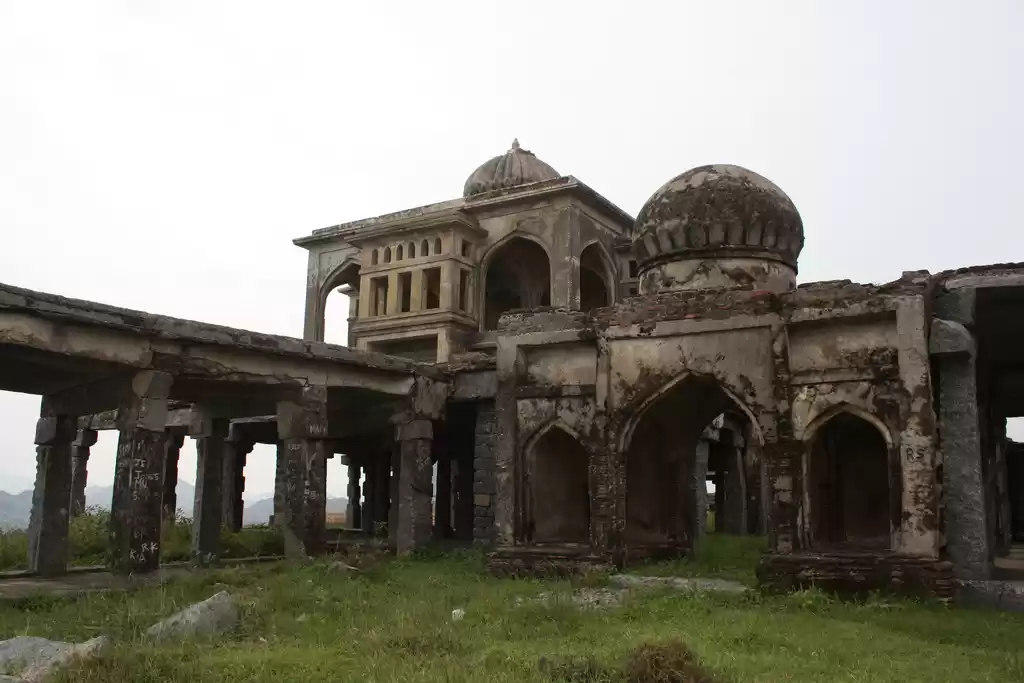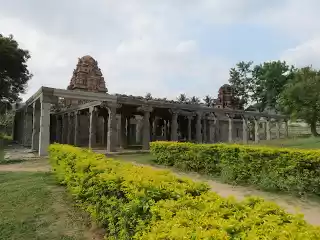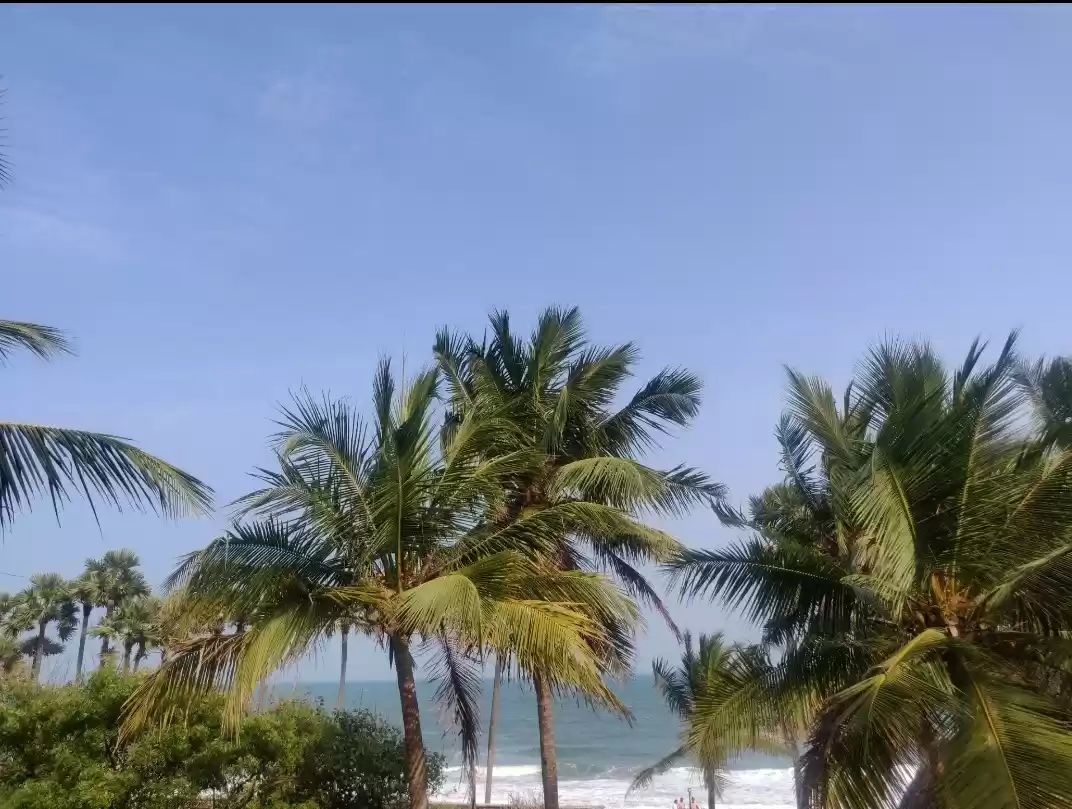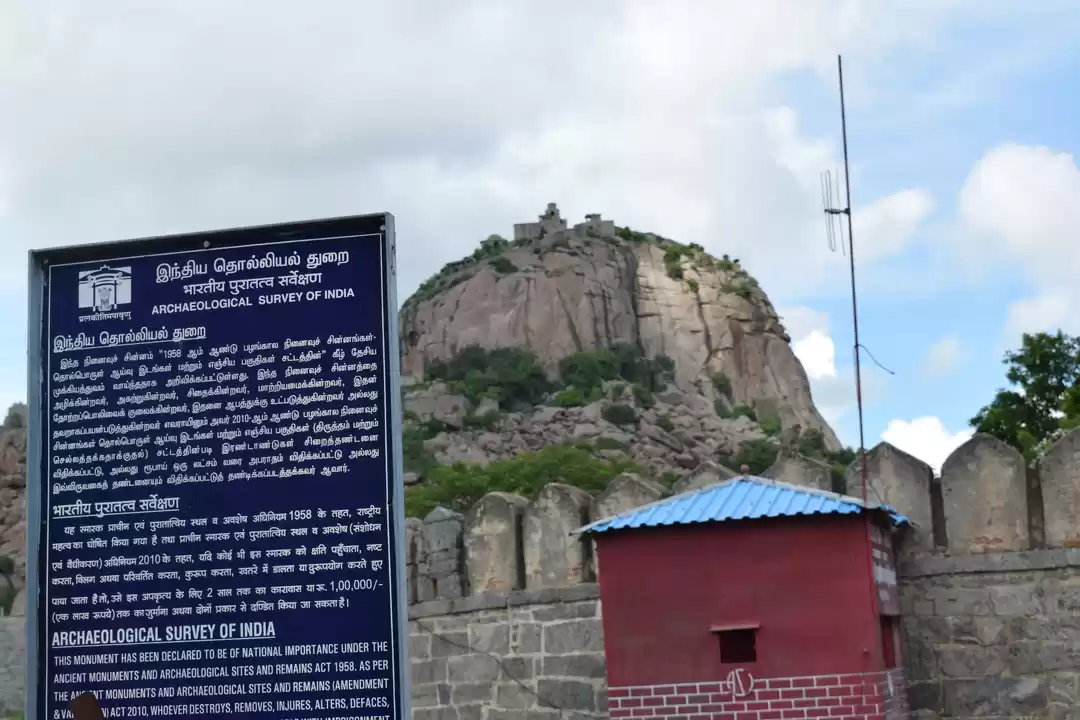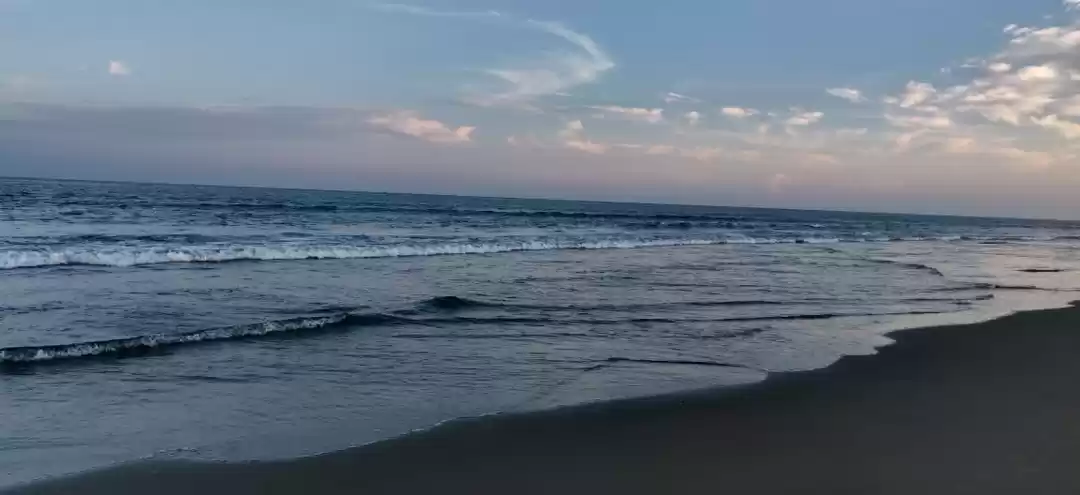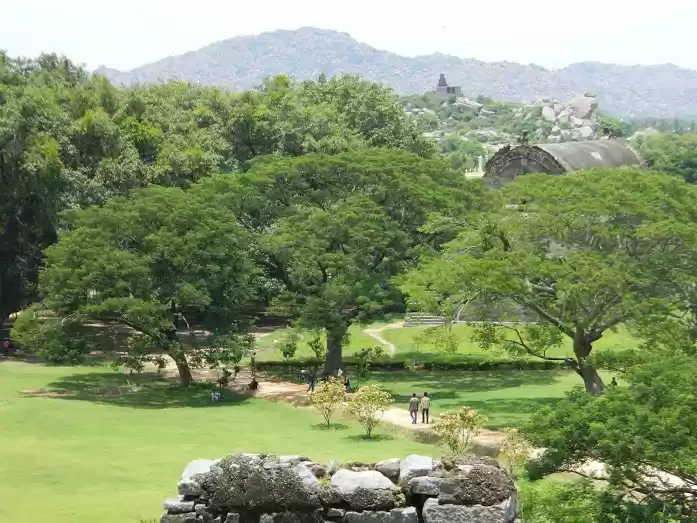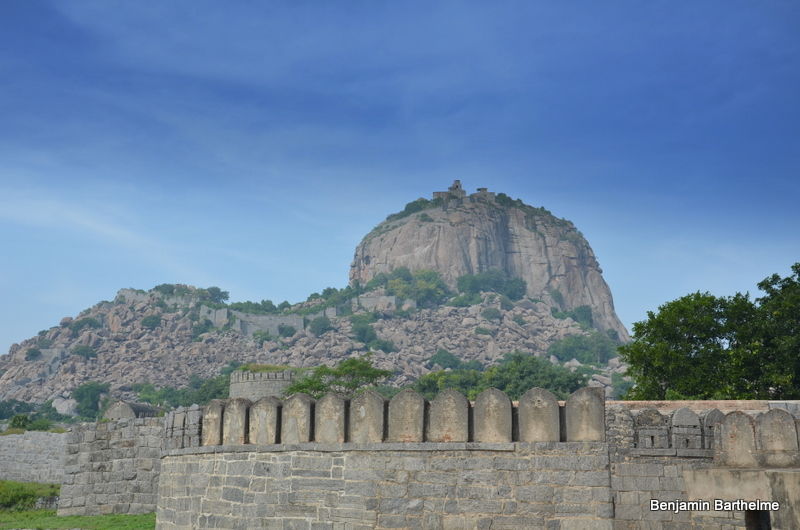
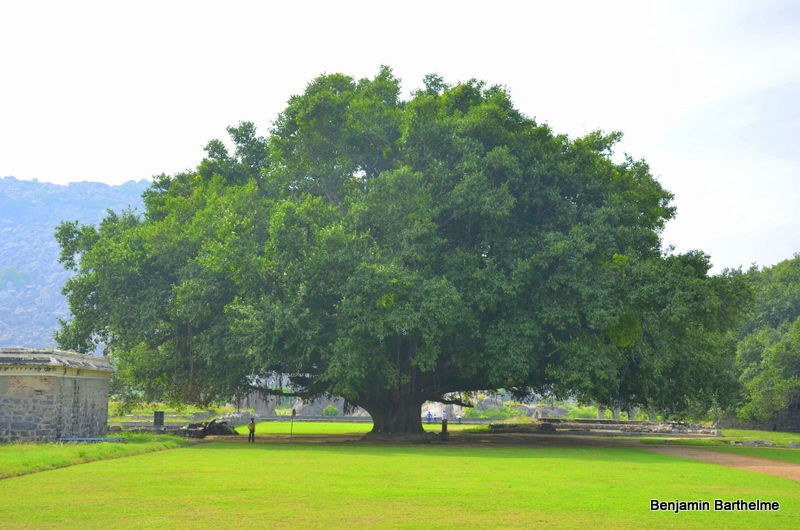
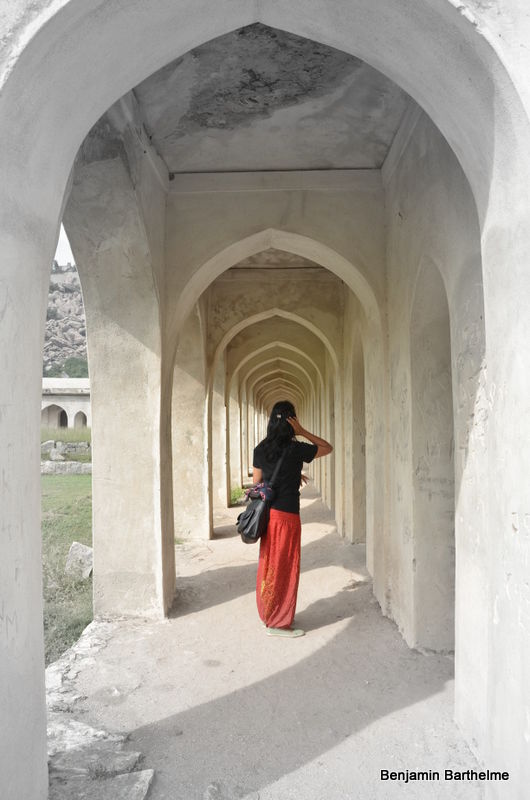
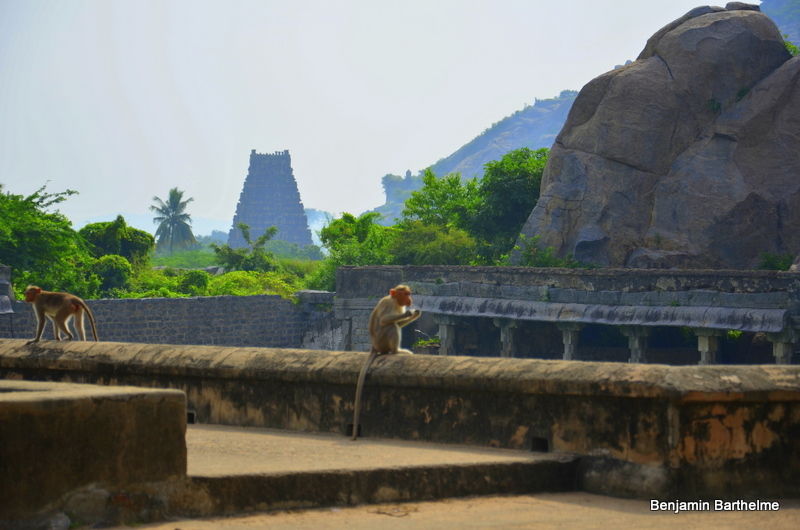
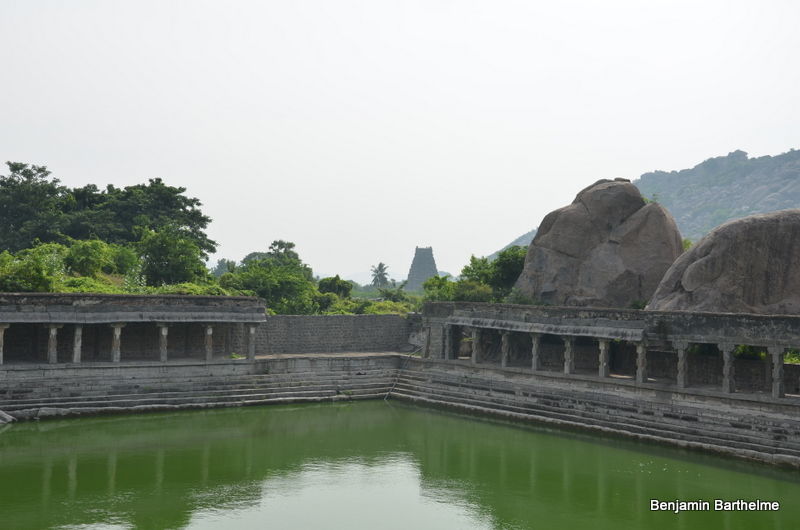
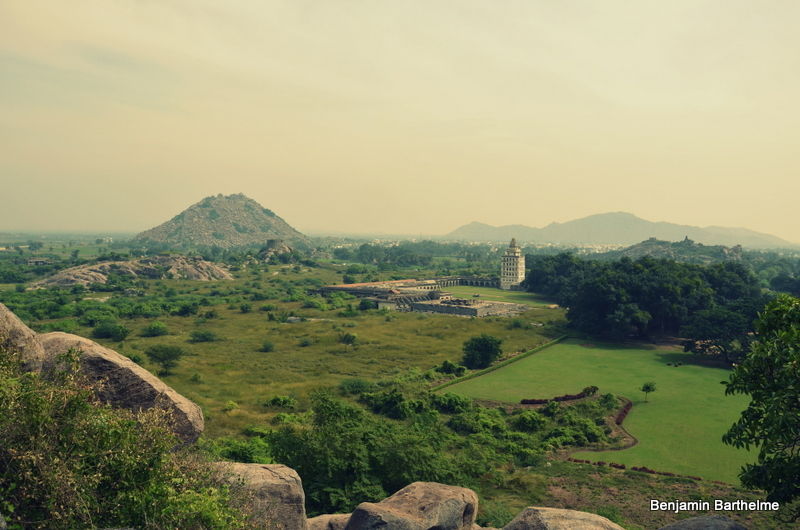
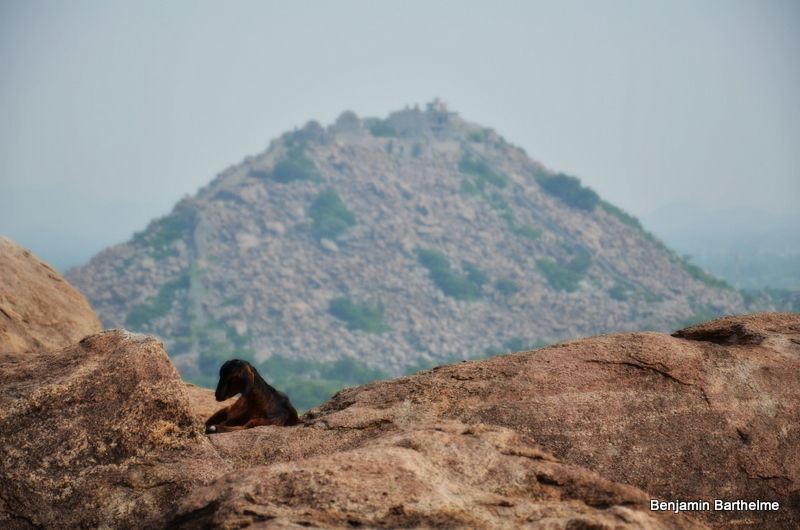
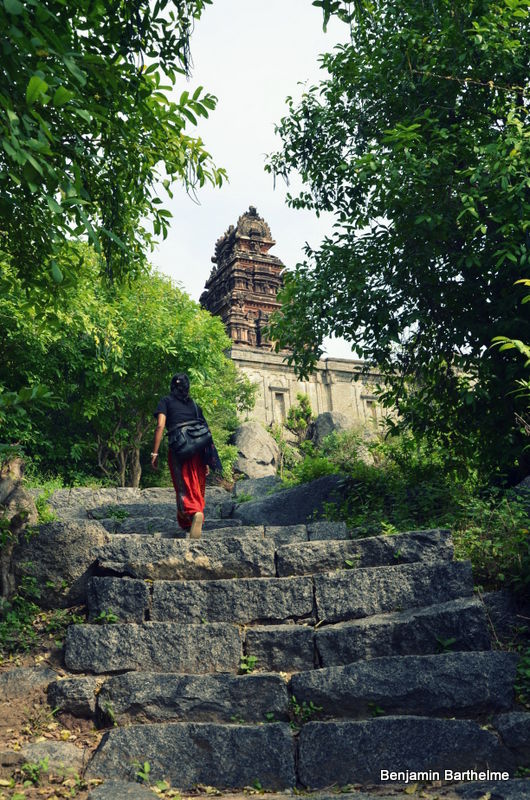
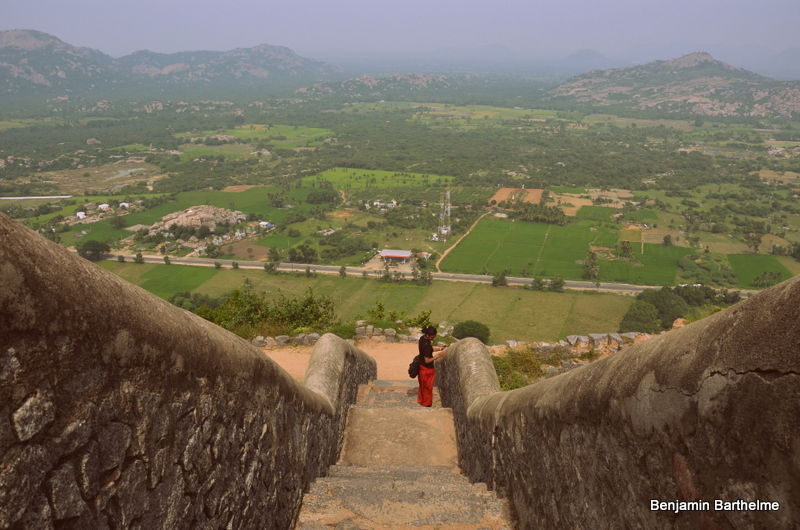
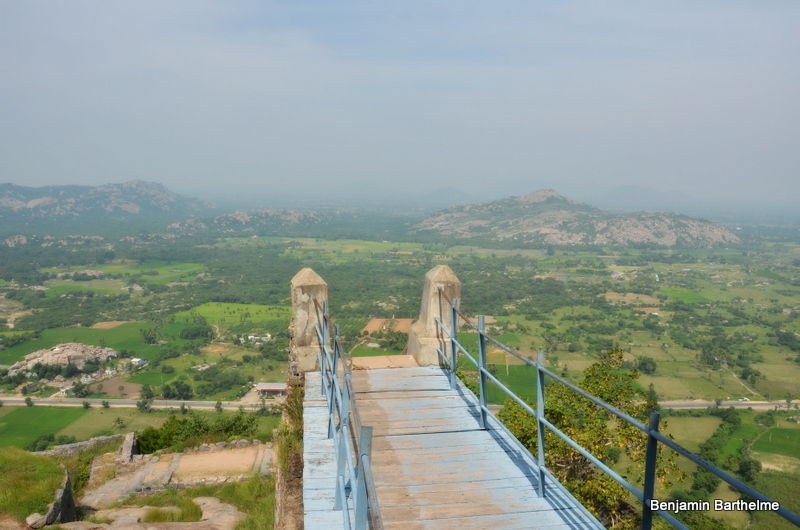
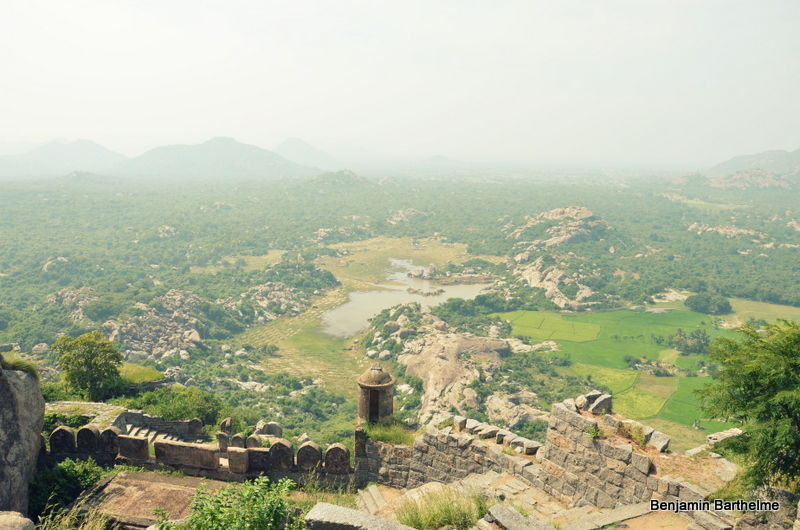
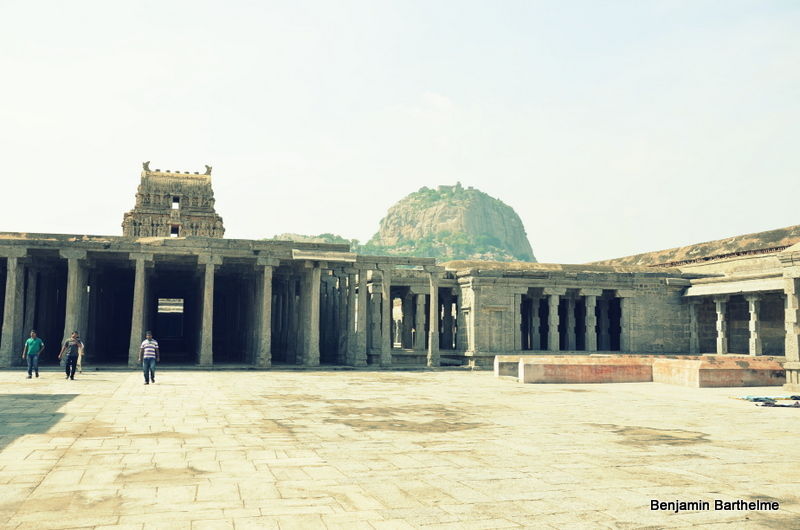
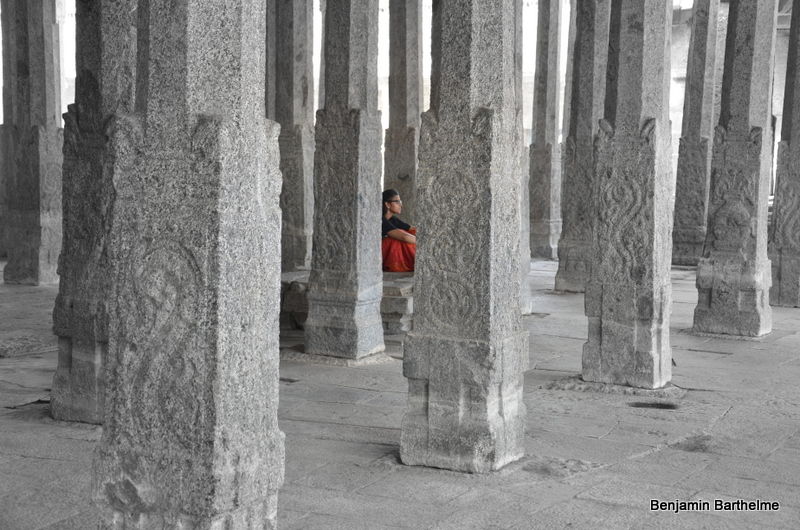
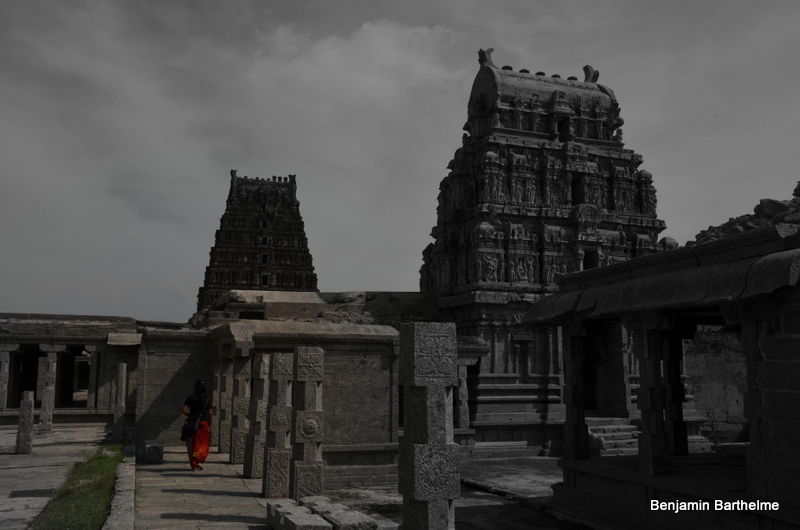
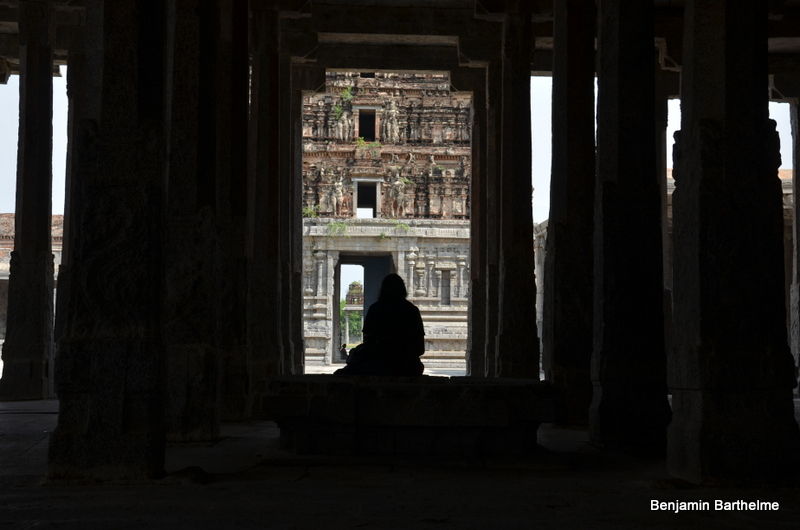
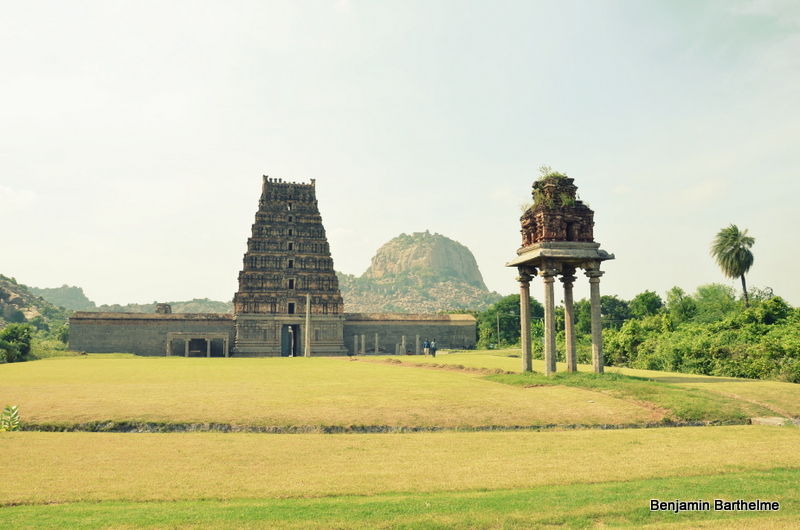

“Half the fun of travel is the aesthetic of lostness” – Ray Bradbury
Every person, every traveler has that one that one kind of place that they keep going back to..in their journeys through time and physical places and their minds. For some it may always be finding that secluded spot on a beach and counting the waves as they slowly die and reincarnate again and again, and for some it may be spending hours studying and watching people in a bustling market. For me it will always be the ruins. Nothing gives me the sense of satisfaction, of discovery, of peace and calm, of humility as sitting alone in the midst of ruins, imagining how a century ago, that very same spot could have been used to sell fruits in a Sunday market, or by a courtesan enthralling her audience, or by a king making important (or not-so-important) decisions! Just the time travel in my mind gives a sense of awe that nothing can parallel.
So while we were on our weekend getaway to Pondicherry (and getting bored out of our minds by the second day...no offence to Pondy lovers!), we decided to check out Gingee (yeah Lonely Planet had like one paragraph about it in their South India section, but just those few lines were captivating enough).
Gingee lies almost midway between Chennai and Pondicherry and it’s close to a two hours drive from the latter. The town is located between three hills and the most famous attraction of this otherwise nondescript town is the Gingee Fort. Gingee Fort (also known an Senji, Jinji, Senchi or Chenji) is one of the few surviving forts in Tamil Nadu and was tipped as the “most impregnable fortress in India” by the Maratha ruler Shivaji and the British were so kind as to call it the Troy of the East.
The site originally built by the Chola dynasty in the 9th century AD, has since then passed through the leadership of the Vijayanagara Empire, the Marathas, Bijapur sultans, the Mughals, French and finally the British. The complex is nestled between three hillocks: Krishnagiri to the north, Rajagiri to the west and Chandrayandurg to the south east. Apart from the fort, the complex houses a 7-story building called the Kalyana Mahal (marriage hall they say), granaries, prison cells, temples and several tanks. If you’re lucky then you’ll have almost the entire complex to yourself to explore and relish in peace, otherwise like us you may have to share it with bus loads of weekend travelers and school kids!
Though the complex in itself is absolutely beautiful, but your mind really begins to get blown when you start the uphill climb to the fort. The steps are more like huge slabs of rocks and climbing those can totally replace the lunges one does in the gym and to top that the climb is at least 45 degrees if not steeper. And if this wasn’t enough there will be monkeys jumping around trying to take your belongings just for fun or kids trying to race each other to the top or to the foot! But still, despite all this, with every few steps when you just look around, without fail one ends up heaving a huge sigh (party due to breathlessness), but mostly because there’s nothing else that you’d do at that very moment but soak in the feeling of (almost) being on top of the world!
Before the climb I had read the ASI description about the fort being impregnable, but I truly understood the meaning when I got on top and realized that there was a real draw-bridge across a massive crevice which separated the actual fortress on the top from the rest of the structure! And crossing that bridge is not for the faint hearted, or those suffering from vertigo like me! At that height, with the winds howling, you feel like you’ll be blown away like a stray kite with every step that you take!
But once you finally station yourself on top, and look down at the rest of the world, the complex which would have once been teeming with people, the granaries with produce, the chants of the priest in the temples, the two other hillocks guarding the complex and everything else takes a back seat. In those few moments lie the little joys of life which make the rest of the weeks and months worth going through.
Near the complex is the Venkataramana Temple which was built by the Nayakas. This is usually comparatively more secluded than the inner fort, maybe because this edifice is actually quite secluded. The entire temple brims with large monolithic pillars, which adds the Mummy Returns sort of eeriness.
In short, Gingee is a jewel. When in Chennai or Pondicherry, it is a must visit.














